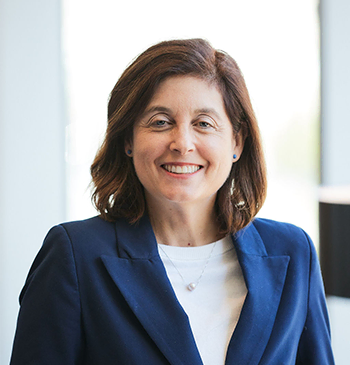
Wells Fargo’s Accelerator is Nothing Like Shark Tank

Braden More
Executive Vice President and Head of Enterprise Payment Strategy
Wells Fargo & Co. is playing venture capitalist with its Startup Accelerator program. It’s a much friendlier version of ABC’s popular reality show Shark Tank, making investments in early stage tech companies and providing business line managers to mentor and offer help in the form of a real-world customer, Wells Fargo, who might use the technology.
The San Francisco-based, $1.7 trillion asset bank holding company recently announced the second round of companies accepted into the six-month program, which provides as much as half a million dollars each for development. Three companies received the funding: one that interprets and predicts mobile application behavior using sensor data on your mobile phone, called Context360; another that provides affordable communication software for the deaf, called MotionSavvy; and a third that uses the public cloud to run enterprise applications, called Bracket Computing.
In an interview with Bank Director Managing Editor Naomi Snyder, Braden More, Wells Fargo’s executive vice president and head of enterprise payment strategy, describes how the company wants to foster innovation, find great ideas, and share those ideas with the rest of the banking world.
What was the genesis of the Startup Accelerator?
We realized we were doing a lot of outreach to innovative companies but we were missing a lot of ideas that were flowing like a river out there. We wanted to come up with a program that allowed us to connect, and provide a single doorway.
How is your Accelerator different from Silicon Valley venture capital labs?
[We’re like] a friendly customer mentoring you for six months. We’re giving you access to a real world customer for six months. It’s not that they have 45 minutes to pitch their stuff. We sit down with them. We want to know how they can help us, maybe help us with our deaf customers, or help us detect fraud through all the information you can get off the sensors in your phone. A lot of times, we’re not quite sure how this is all going to come together, but we like the fundamental idea and we like having the conversation. Our goal is not to outsmart the entrepreneur and take control of their business, like some [venture capital firms]. We are cooperative. We are not driving the investments, or putting the screws to the investors.
Does Wells Fargo take a minority stake in the company?
Yes. These are very small stakes. There are Bank Holding Act restrictions that suggest we are always taking a less than 5 percent voting stake. If we put Wells Fargo capital into a company, it feels like a special relationship and companies that are small really like the commitment from Wells Fargo.
Are you bringing people into a physical “lab?”
No. The relationship is really based on wherever the buyer/mentor is. If you have a wealth management concept, you might find yourself in St. Louis with our wealth management team, for example. We’re trying to connect people with the real buyers or real customers, and not necessarily have everyone coming to San Francisco.
What has been the reaction of business line managers?
A lot of them have been tickled. I provide the infrastructure and the funding. It becomes a tool they can use. If they and their teams see an idea they want to bring in, they can do that. That happened with MotionSavvy. Someone in a line of business saw them and said, ‘This is an interesting idea, and you should apply into the Accelerator.’ Context360 knew about our Accelerator and submitted an application, which we then read and brought back to a line of business, and said, ‘If you are interested, please step forward as a sponsor.’ I want to make sure [these companies] have someone [at Wells Fargo] who believes in them and buys into the fact that they are going to be a mentor for the next six months. We have lines of business that have made it part of their core DNA to be innovative—they have innovation labs and they have people who have innovation in their titles, and there are other lines of business who are just warming up to this.
You are not going to hold a patent to any of these technologies, right?
Their intellectual property is their business. We recognize they are developing their products. Our suggestions and improvements are becoming their technology. A lot of incubators are chasing future returns, the Facebooks of the world, the big whales. They are looking to do something exclusive. For us, we are trying to be open to the best ideas. We recognize that an entrepreneur with a fantastic idea that is going to change financial services is never going to enter an Accelerator where they can only take the idea to one bank, because there are thousands of banks. As a banker, we have a lot of common problems, such as fraud and security. If, as an industry, we can lower fraud levels for our customers, we think that’s a win for everyone.
What has been the reaction to the program so far?
We are thrilled with the response to date. This semester, we are expanding and taking a global look. We are looking for great ideas globally. We have been very pleased. I wouldn’t say there is a cultural change for the whole company, but for those people who are responsible inside their lines of business for being the champions and evangelists for innovation, we are starting to connect those people inside Wells Fargo. They have a shared platform to do innovation and engage with these outside companies and be challenged by these ideas.


